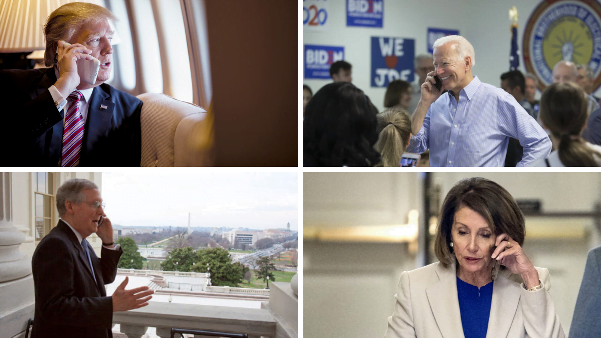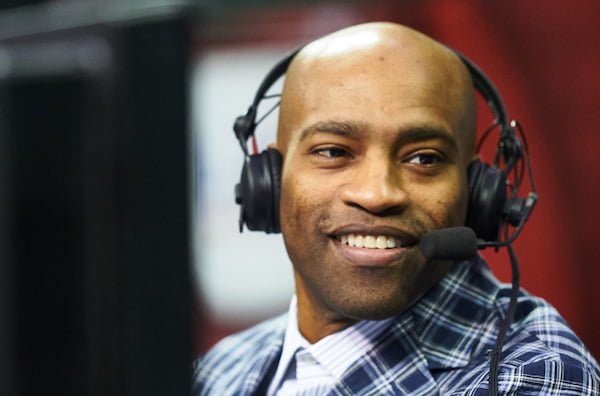The term filibuster—from a Dutch word meaning “pirate”—became popular in the 1850s, when it was applied to efforts to hold the Senate floor in order to prevent a vote on a bill. It’s since become a staple in the political world. The record for the longest individual speech goes to South Carolina’s J. Strom Thurmond who filibustered for 24 hours and 18 minutes against the Civil Rights Act of 1957.
But for those of us who host political talk shows and get to speak with politicians on a daily basis, the word is a regular part of our vocabulary as well.
There’s nothing worse than preparing for a 10-12 minute interview with a politician, having your questions lined up, knowing exactly where you want to take the conversation, but then getting filibustered on 3+ minute, meandering answers to questions that might need, at most, half that amount of time to answer.
What do you do? Interrupt a U.S. Congressman or Senator? It can be done if you find that perfect point to break it up, but it can be risky too, and you may risk some access to that individual who can bring credibility and appointment listening to your show.
When I made the move from fill-in hosting at FOX News Radio to KCMO Talk Radio in Kansas City, I wanted statewide and federal politicians to be regular staples on the show, but I wanted to make sure the conversation was substantial in content and was enjoyable for the listener.
I think back to a story Bill O’Reilly has told many times publicly, where before he sat down with President Obama before their interviews prior to the Super Bowl on FOX, he explained to the President that the time was limited, that he would like direct, to-the-point answers, so that they could get to as much information as possible in a limited period of time.
When I began welcoming on our local leaders here, I had similar conversations with either the politicians themselves or their communications folks. As the new guy, I sure wasn’t as direct as Bill O’Reilly may have been, but I had conversations saying, “in an effort to serve our audience”, we want to keep this conversation moving. I also spun it in a way to portray it as giving the elected official more opportunities to weave in points that they’d like to make on a plethora of issues.
I also made sure to let them know this does not mean leaving out key ideas, themes or data points that are valuable. But it means getting to the point.
And of course as the interviewer, it’s our job to ask those questions in as pointed a manner as possible. Whether it’s news talk, sports talk, TV news, etc… the “Who?” “What?” “Where?” “When?” and “How?” that is less likely to result in an answer with no point is our job. Plus, having our road map and trying to ask our question in as few words and as quickly, with substance, as possible.
Moving from sports talk to news talk, it was different since with athletes, while some trained themselves to speak many words while saying nothing (Derek Jeter, Tom Brady) most are interested in answering quickly and moving on. Politicians are not like that. They like the Jeter-Brady model and they thrive on perfecting it.
However, even despite this leg work, an interview is never going to be perfect. And there are times when you’ll need to “gently remind” a politician of the need to be succinct before going on the air. It’s a constant work in progress, but building a repo ire with the person helps them get more comfortable with you, understanding you have a job to do, while also knowing your questions will sometimes be tough, depending on the issue at hand, but fair.
Of course, there have been times when the interruption is needed with a transition such as, “Senator, with the time we have left…”, “Congressman, before we wrap up I wanted to make sure we got to…” and while it’s not ideal, if it needs to be done, do it. The audience is your customer and while there’s a risk of annoying a big-time guest, if you’ve had the prior conversations about the stated goals of the interview, it should come as no surprise, and may even be a reminder for them that they were rambling. But most importantly, your audience will appreciate it.
It’s a balancing act that no matter how well you may know the politician, will never be perfect, but it’s something that can be improved upon over time and should always be worked on. If not, you’ll be falling asleep on your own show during five minute answers that will put a new meaning to the word “filibuster”.
Pete Mundo is a weekly columnist for Barrett Media, and the morning show host and program director for KCMO in Kansas City. Previously, he was a fill-in host nationally on FOX News Radio and CBS Sports Radio, while anchoring for WFAN, WCBS News Radio 880, and Bloomberg Radio. Pete was also the sports and news director for Omni Media Group at K-1O1/Z-92 in Woodward, Oklahoma. He’s also the owner of the Big 12-focused digital media outlet Heartland College Sports. To interact, find him on Twitter @PeteMundo.







